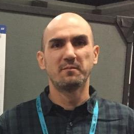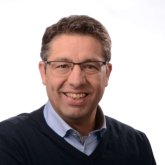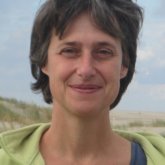PhD opening in Understanding the impact of nature-based solutions in small rivers
Are you interested in modeling and field studies to better understand the impact of nature-based solutions on hydrodynamic and morphodynamic processes in small rivers? At the Civil Engineering & Management Department, we are looking for a PhD researcher to strengthen our team. We are an active and dynamic group of researchers pioneering in the modeling and engineering of marine and fluvial systems.
Alongside two other PhD students at the University of Twente, you will be participating with many other researchers and practitioners in the national growth fund program: NL2120, elevating nature-based solutions. Recently funded by the Dutch government, NL2120 aims to develop the knowledge that is essential for supporting the large-scale realization of nature-based solutions.
This PhD project aims to explore the impact of nature-based solutions on small river systems in the Netherlands. Nature-based solutions promote the utilization of natural processes to create a resilient water infrastructure that simultaneously satisfies societal and ecosystem needs. Such nature-based solutions include creating space for water retention and periodic flooding, re-meandering of straightened river sections, removing bank protection, increasing flow resistance by promoting vegetation growth, and installing natural structures such as dead wood, which increases the flow variability and provides habitats for a wide range of species. Although these measures are expected to help prevent floods and/or droughts and to promote ecosystem services, they are being implemented on “ad-hoc” designs without knowing the long-term and larger-scale developments and their contribution to the desired impacts.
The River Dinkel and possibly other small rivers in the vicinity of the UT will be used as case studies to investigate how recent nature-based interventions have affected the hydro- and morphodynamics of these small rivers. The research will be carried out by a combination of small- and large-scale hydrodynamic and morphodynamic modeling to evaluate the current situation and to investigate the future development of the system. Developing these models (either from scratch or by adapting existing models) will be part of the project. Available field data (e.g., river bathymetries and cross-sections, discharges, etc) will be complemented by flow velocity measurements with acoustic instrumentation (ADCPs and ADVs) to support the model studies. The goal of this research is to assess the impact of different nature-based designs and to develop tools to generalize the knowledge from the case studies.
Information and application
Please upload your application until 16 February 2025 23:59 via the ‘Apply now’ button. Your application should include:
• a cover letter (emphasizing your specific interest, motivation and qualifications)
• a detailed CV
• an academic transcript of BSc and MSc education with grades obtained
• a publication list (if applicable)
• result of an English test (if you attended a non-English taught MSc program)
• contact details of 2 referees
Since only three documents can be uploaded per application, please combine documents if needed.
An interview will be part of the selection procedure. The first selection interviews are planned on 27 and 28 February 2025. The project will start as soon as possible after a suitable candidate is found.
For more information about the position, you may contact Dr.ir. Vasileios Kitsikoudis (v.kitsikoudis@utwente.nl, +31 53 489 9910) or Dr.ir. Denie Augustijn (d.c.m.augustijn@utwente.nl, +31 53 489 4510).
About the organisation
The Faculty of Engineering Technology (ET) engages in education and research of Mechanical Engineering, Civil Engineering and Industrial Design Engineering. We enable society and industry to innovate and create value using efficient, solid and sustainable technology. We are part of a ‘people-first' university of technology, taking our place as an internationally leading center for smart production, processes and devices in five domains: Health Technology, Maintenance, Smart Regions, Smart Industry and Sustainable Resources. Our faculty is home to about 2,900 Bachelor's and Master's students, 550 employees and 150 PhD candidates. Our educational and research programmes are closely connected with UT research institutes Mesa+ Institute, TechMed Center and Digital Society Institute.





